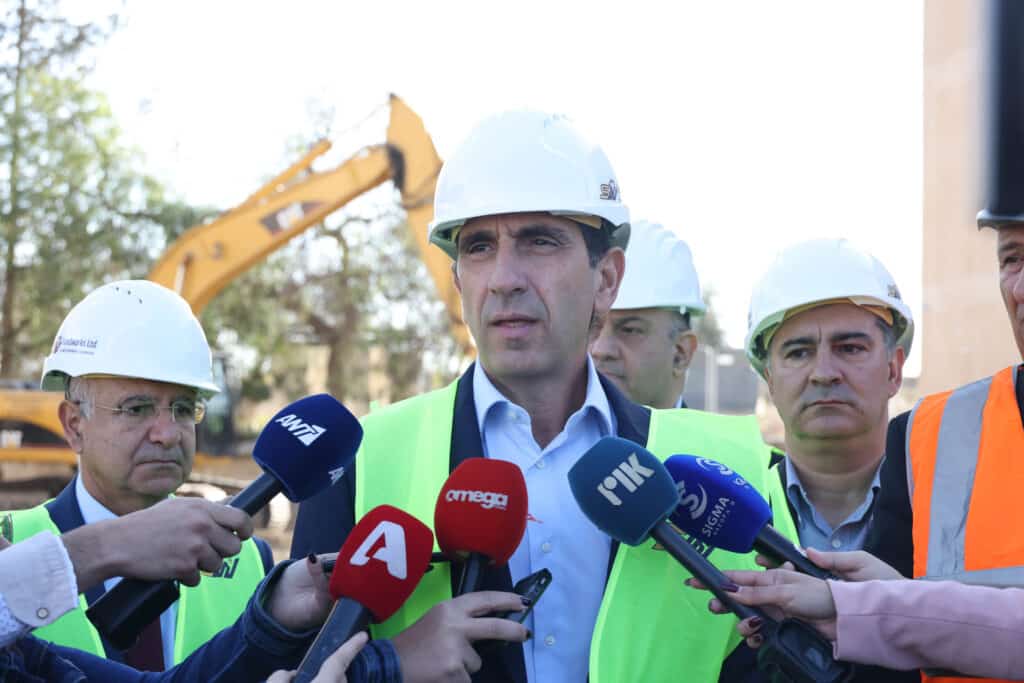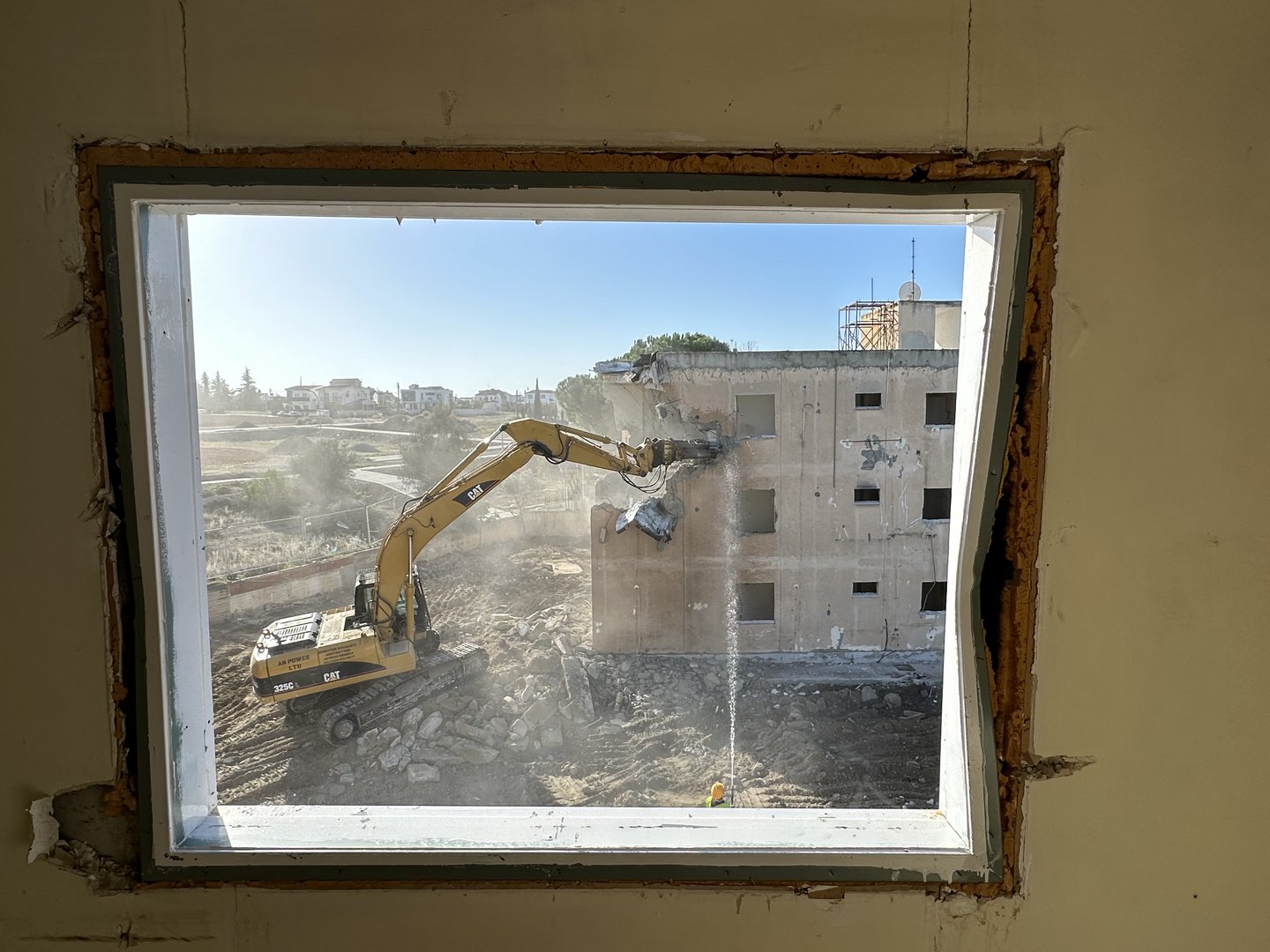Bulldozers began knocking down the first of refugee buildings deemed inadequate on Friday, at the Apostolos Andreas estate in Latsia, Nicosia.
The first demolitions were attended by Interior Minister Constantinos Ioannou, who launched the ktiZO plan, which would see buildings in the refugee estates deemed unsafe demolished, along with support for people affected to get a new home.
Speaking from the scene, Ioannou said: “The start of the demolition works is now a fact and marks the practical implementation of the first phase of the ktiZO plan, just a few months after the plan was announced by the government, and the aim is to offer a complete and definitive solution to the perennial problems of static inadequacy that was present in the apartment building.”
He underlined that, as a state, “we have undertaken the moral obligation to ensure safe and dignified living conditions for our compatriots who are experiencing the consequences of illegal [Turkish] occupation”.
The refugee housing plan Ktizo – meaning build in Greek – was announced earlier this year before the other raft of incentives to get people into homes and is a scheme providing grants to people currently living in condemned buildings and who choose to relocate to newly-constructed buildings, or alternatively subsidies for those choosing to opt out and instead rent in the private sector.

Interior Minister Constantinos Ioannou at the demolition site on Friday
The first phase of the project concerns 43 buildings deemed structurally unsafe. Of these, 20 have been classed as ‘imminently dangerous’ and tenants need to move out as soon as possible.
Ioannou expressed the government’s determination for the successful implementation of the plan, and said he was satisfied with the increased number of people seeking to benefit from the plan, despite initial apprehensions.
Specifically, of the 43 apartment buildings in the first phase, a total of 274 beneficiaries have expressed interest in participating. Another 16 cases expressed a desire to withdraw from the plan, while a total of 143 cases of beneficiaries have been granted a rent allowance, equating to a total monthly expenditure of around €100,000 for the ministry.
Ioannou also commented on the committee examining the refugee cases based on their socio-economic status. He said that the committee found 64 cases that need further assistance, and that it was decided for 59 cases to have their contribution into the rent of a new place partially covered by donors such as Opap Cyprus, and other private companies.
“I want to emphasise once again that the plan is not static. We are not dismissive of any suggestions for improvements, modifications and I can tell you that, to the extent possible, we have made improvements and modifications, primarily from suggestions of the beneficiaries, but also from the head of the House refugee committee and the members of the committee.”
Five buildings are set to be demolished in Latsia while by the end of the year, the contract for the demolition of the apartment buildings in the Strovolos municipality will be announced, followed by the rest of the 20 apartment buildings deemed inadequate.
Asked when the construction of the new apartment buildings is expected to begin, Ioannou pointed out that “this is left mainly and primarily to the beneficiaries themselves. For example, the first team has been created, they have appointed a coordinator and very soon they will proceed to get offers, always with our own guidance, and then the construction will begin.”
Latsia Mayor Christos Pittaras said a history of 12 years is coming to an end.
“The apartment buildings were dangerous for our citizens, for the people who lived inside, mostly our elderly refugee citizens who lived here since the 80s. These apartment buildings were built for temporary accommodation,” Pittaras said.
He expressed the belief that in a few months the tenants of the apartment buildings will be able to return to the new apartments and continue their lives.







Click here to change your cookie preferences